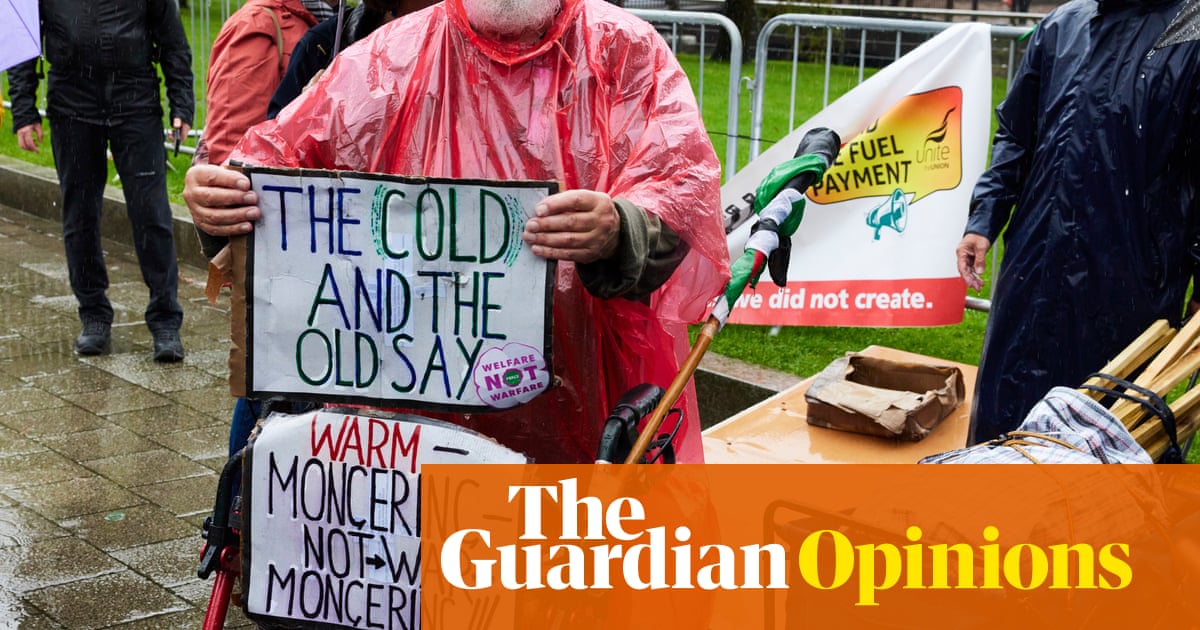On Wednesday,Keir Starmer indicated he may U-turnon last year’s winter fuel payments cuts. The prime minister announced in the Commons that he would look again at the £11,500 threshold over which pensioners are no longer eligible for the payment, meaning that more pensioners will again be eligible for the benefit. As a Labour MP who voted against the cut, I think the government should go further.
During the election, I promised I would defend the community I represent, fight for working-class people and stand by my principles. And so I could not in all conscience vote forthe removal of the winter fuel paymentfrom up to 10 million pensioners as one of the first actions of the new Labour government in September. Approximately 17,000 people in my constituency lost their winter fuel payment. Similar numbers can be seen in constituencies throughout the country.
When I think of today’s pensioners, I recall the great generation of working-class people who rebuilt the nation after the second world war. I worked in the clothing factories in Leeds when I left school, and in the building industry in Yorkshire. I saw that generation work hard to create the wealth that we see today. There were others who served in the armed forces. I represent many pensioners who worked in the coalmines. Their work was dangerous. It was hard and it was dirty. They helped create the light, heat and power for our homes and industries.
We owe that whole generation a debt of gratitude. It is right that we have tried to secure a decent pension for all by maintaining the triple lock. It was right too that in Gordon Brown’s first budget in 1997,Labourvoted to introduce the winter fuel payment to ease the burden on cold winter days. I was proud that day to vote for it.
The point has been made that the payment – of £200 or £300, paid annually in autumn to all pensioners – unjustly handed money to wealthy people. That may be so in a small number of cases. But the truth is that the £11,500 cut-off point was so low that itthrew at least 100,000 people into hardshipat the most difficult time of the year, just as autumn was slowly going to turn into winter. It was brutal in its implementation since pensioners didn’t have time to adjust their household budget before the frosts arrived.
Some have said that we should restore the payment to save the Labour party at the ballot box. I say something different. Government policy ought to be guided by true Labour values, not just electoral calculations. Pay respect to pensioners, and accept that the payment cut was an error in judgment. Cuts to sickness and disability benefits also need to be completely rethought.
But all this leads to a bigger question. Why did the government make these mistakes? The answer is simple. Last year, the country voted for change, not the continuation of austerity. Yet the government has become entrapped by a stale economic orthodoxy made in the Treasury and in the Bank of England. We need to break free from this narrow mindset. We should build a fiscal framework that addresses the realities of food bank Britain, its profound inequalities, broken public services and declining infrastructure.
Some will say we can’t afford to look after our pensioners. But this is one of the richest countries in the world. Only this week, we learned that the richest 50 families in the UKown more wealththan half of the population (34 million people). Would those families really begrudge helping out the generation that helped to create the wealth they now own? And if they do begrudge it, ought we really take those opinions into account? I believe it’s time we taxed the wealth of the richest individuals in the country.
There are two final questions the government needs to answer. First, when will pensioners know if and when their winter fuel payments will be restored? The prime minister says he will make an announcement at the next fiscal event – but that isn’t due until the autumn. It surely cannot be the case that pensioners will be left uncertain as to what will happen in the winter.
And my second question is: will the prime minister and chancellor apologise for the anxiety and stress so many people experienced during the winter’s cold dark nights?
It’s time for Labour MPsto stand up and be counted. Let’s insist on keeping faith with the central values of the British people who – above all things – want a country based on fairness. Justice for pensioners would be a good place to start.
Jon Trickett is the MP for Normanton and Hemsworth in West Yorkshire and former member of the shadow cabinet
